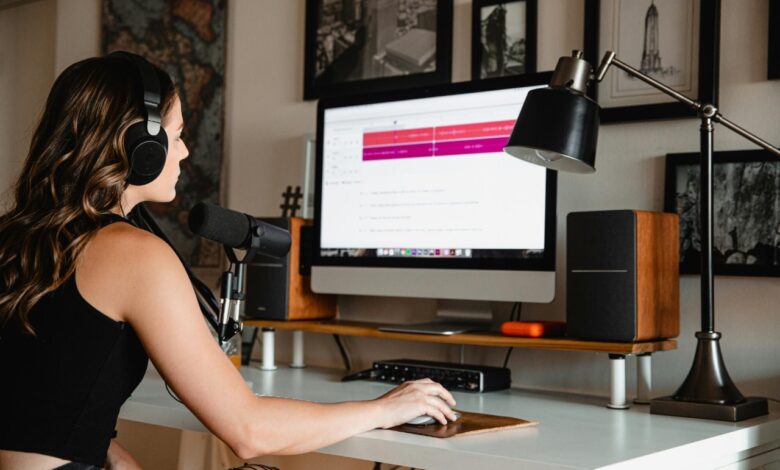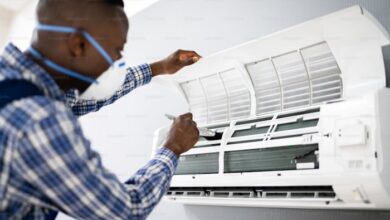Crafting Quality Content: Top 8 Skills Required for Podcast Editor Jobs

In the rapidly expanding universe of podcasts, the role of a podcast editor is becoming increasingly critical.
The demand for skilled podcast editors has never been higher. This comes along with listeners yearning for captivating stories and flawless production quality.
If you’re considering a career in this vibrant field, understanding the essential skills required for podcast editor jobs is crucial.
Mastering these top 8 skills would significantly elevate your editing prowess. So, read on!
1. Audio Editing and Mixing
Audio editing and mixing are the foundation of podcast production. A podcast editor must have a deep understanding of audio editing software This includes its features and functionality.
This involves:
- cutting
- trimming
- adjusting levels
- adding sound effects and music tracks
- equalizing
- compressing
Ensuring smooth transitions between different segments is also vital for a seamless listening experience. Moreover, a podcast editor must have an ear for detail. They must have the ability to identify and remove unwanted noises such as:
- pops
- clicks
- hisses
- background noise
They must also ensure that all audio elements are mixed well to produce a cohesive sound.
2. Sound Design and Mastering
Sound design is the art of creating a unique and immersive audio experience for listeners. This includes selecting appropriate:
- sound effects
- ambient noise
- music tracks
All these are needed to enhance the podcast’s storytelling. Mastering involves fine-tuning all audio elements to achieve consistent loudness levels and an overall polished sound. It also includes ensuring that the podcast is optimized for different listening devices and formats.
Moreover, a podcast editor must have an excellent understanding of audio levels and dynamics to prevent any clipping or distortion in the final product. This is crucial for delivering a professional and high-quality podcast.
3. Technical Skills
Apart from audio editing and sound design, a podcast editor must have a strong technical background. They should be familiar with different:
- recording equipment
- microphones
- software
All these can be used in the production process. Knowing how to troubleshoot technical issues is also essential to ensure smooth recordings. Moreover, podcast editors must have a basic understanding of different:
- audio formats
- bitrates
- compression techniques
That way, they can deliver high-quality audio files. This requires staying updated with the latest industry standards and advancements in technology.
4. Attention to Detail
Being a podcast editor requires a keen eye for detail. They must be able to spot errors and inconsistencies in audio quality, transitions, and levels. This includes checking for any mistakes in the script or audio recordings before finalizing the episode.
Moreover, having an eye for detail means being able to identify areas that need improvement and offering creative solutions to enhance the overall production quality. This skill is crucial for delivering polished and professional-sounding podcasts.
Attention to detail also includes being diligent with managing and organizing audio files. Thus, ensuring that they are labeled correctly and stored in an organized manner for easy access. This helps in maintaining efficient and streamlined production processes.
5. Time Management
Podcast production involves multiple tasks and deadlines. This makes time management a crucial skill for a podcast editor. They must be able to:
- prioritize tasks
- work efficiently under pressure
- meet tight deadlines
These can be done without compromising on quality. This also includes being able to juggle multiple projects simultaneously and knowing how to manage their workflow effectively. Time management is vital for delivering high-quality episodes consistently and keeping the production process on track.
Moreover, podcast editors must have the ability to adapt and work well under changing circumstances. This may include last-minute edits or unexpected delays. This requires being highly organized and having excellent communication skills.
6. Communication Skills
Effective communication is essential for a podcast editor to collaborate with other team members, including:
- producers
- hosts
- guests
They must be able to convey their ideas and provide constructive feedback while maintaining good working relationships. Moreover, podcast editors should be excellent listeners. They must communicate effectively with clients to understand their vision and expectations for the final product.
This involves being open to suggestions and incorporating them into the production process. Communication plays a crucial role in managing any technical issues that may arise during the editing process.
A podcast editor must have the ability to explain technical concepts in simple terms. This makes it easier for others to understand and resolve any problems.
7. Creativity
Podcast editing requires a balance of technical skills and creativity. Most podcast editors you can find online can think outside the box and come up with innovative ideas to elevate the production quality. This includes selecting unique music tracks, incorporating sound effects creatively, and designing engaging intros and outros.
Being creative also means being able to adapt to different genres and styles of podcasts while maintaining a consistent level of quality. This skill is crucial for keeping the content fresh and engaging for listeners.
Creativity also extends to problem-solving, where editors must find effective solutions for technical issues or challenges that arise during production. This requires thinking on their feet and being resourceful.
8. Adaptability
The podcasting industry is constantly evolving, and a successful podcast editor must be adaptable to these changes. They should be open to learning new techniques, software, and equipment to stay updated with the latest trends and maintain their competitive edge.
Moreover, being flexible and adapting quickly to unexpected situations or last-minute changes is vital for delivering high-quality episodes on schedule. This skill also includes being able to work well under pressure and handle challenges effectively.
Adaptability also extends to being able to work independently or as part of a team. This depends on the production requirements. This requires excellent collaboration skills and the ability to take direction from others.
Master These Podcast Editor Jobs for Success
Podcast editor jobs require a diverse set of skills. As the demand for quality podcasts continues to rise, mastering these top 8 skills will not only make you an invaluable asset to any podcast production team but also elevate your career in this exciting industry.
So keep honing your editing skills and stay abreast with the latest trends to become a successful podcast editor! Remember, the key to crafting quality content is continuously learning and growing in your craft.
If you want to read more, visit our blog page. We have more topics!



